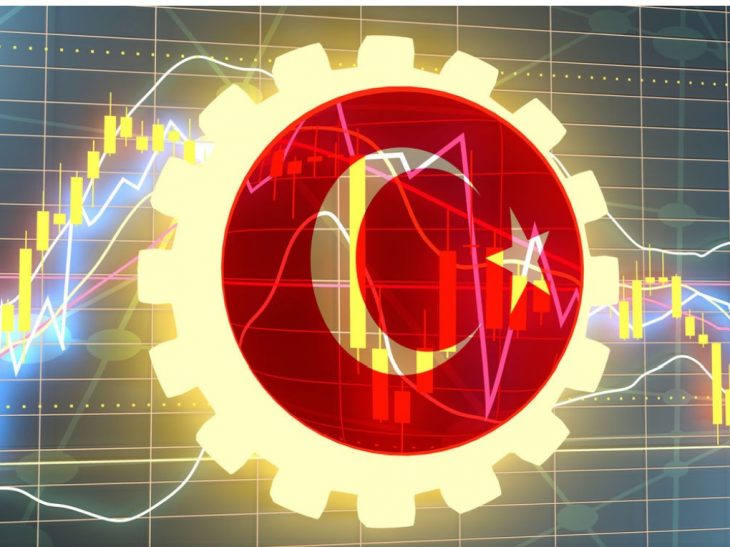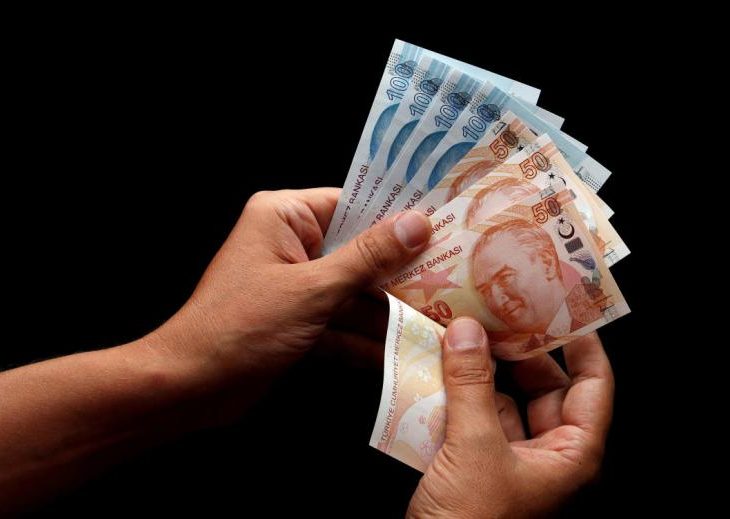Inflation eases in Turkey, EBRD warns
Güldem Atabay
•
April 3, 2025 10:40 am
Turkey’s annual inflation rate fell to 38.1% in March, down from 39.1% in February, according to data from the Turkish Statistical Institute. This decline, which marked the 10th consecutive month of falling inflation, came in below analysts’ expectations of 38.9% and was the lowest level recorded since December 2021.
The slowdown in price increases was evident across multiple categories. Clothing and footwear inflation dropped to 14.8% in March from 20.8% in February. Transportation costs also eased, with inflation in the sector falling to 21.6% from 23.4%. Household furnishings saw a marginal decline, slipping from 33.6% in February to 32.4% in March. Similarly, health-related inflation decreased from 43% to 42%, while inflation in cafes, hotels, and restaurants dropped from 45.9% to 43.4%. Prices in recreation and culture also saw slower growth.
However, food and non-alcoholic beverage inflation edged higher, climbing to 37.1% in March from 35.1% the previous month. Meanwhile, month-on-month inflation accelerated slightly, rising 2.5% in March compared to 2.3% in February.
Will Turkey’s Declining Inflation Lead to More Rate Cuts?
Despite 10 months of declining inflation, Turkey’s inflation rate remains significantly higher than in most other countries. In response, the Central Bank of Turkey has already moved to cut interest rates, lowering its benchmark rate by 250 basis points to 42.5% in early March.
However, inflationary risks persist, particularly following the announcement of a 10% baseline tariff by the U.S. With Turkey’s inflation still elevated, the central bank will likely proceed cautiously in making future policy decisions.
Previously, Turkey’s central bank cut interest rates in the face of soaring inflation, aligning with President Recep Tayyip Erdoğan’s unconventional economic stance—contrary to the policies adopted by other major economies. However, when this strategy led to a sharp depreciation of the lira and an inflation surge, the central bank reversed course, shifting toward rate hikes.
EBRD Cautions Against Rapid Monetary Easing
In its February Regional Economic Prospects report, the European Bank for Reconstruction and Development (EBRD) projected Turkey’s economy would grow by 3% in 2025, consistent with its September forecast. The bank also expects GDP growth to reach 3.5% next year.
Despite these projections, the EBRD warned that persistent inflation and geopolitical uncertainties pose risks to Turkey’s economy. It specifically cautioned against premature monetary easing, highlighting that tighter monetary and fiscal policies have contributed to inflation control and external balance improvements, with net exports rising and the current account deficit narrowing.
However, the bank noted that ongoing inflation pressures, geopolitical tensions, and the impact of the real appreciation of the lira on export competitiveness remain potential threats. Turkey’s economic outlook also depends heavily on global financial conditions, given its substantial short-term external financing requirements.
Political Uncertainty Weighs on Turkey’s Economy
Beyond economic challenges, Turkey’s outlook has been further complicated by political turmoil following the recent arrest of Istanbul Mayor Ekrem İmamoğlu, a key opposition figure and a prominent rival to President Erdoğan.
The detention triggered widespread protests, with Erdoğan’s critics now calling for a mass commercial boycott, urging citizens to avoid purchasing goods and services from companies perceived to be aligned with the government. This growing political uncertainty adds another layer of risk to Turkey’s already fragile economic landscape.
 inflation
inflation






